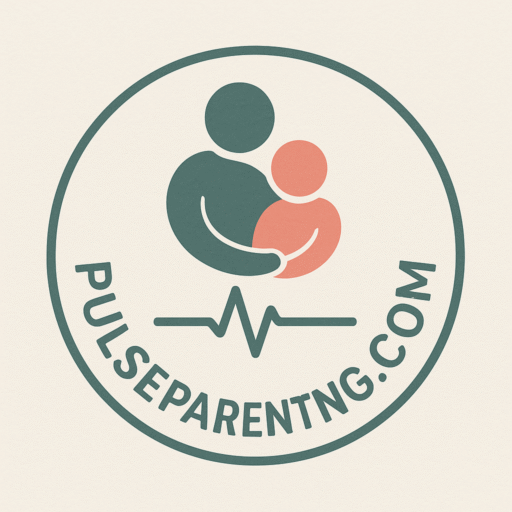I wish no parent should go through this. When one terrified parent posted on Reddit that their 13-year-old daughter had begun talking about wanting to die — again, even after hospitalization — thousands of readers responded. The thread quickly became an extraordinary conversation among parents, teens, and mental-health professionals.
It was raw, heartbreaking, and, unexpectedly, full of hope. https://www.reddit.com/r/Parenting/comments/1o1w84g/my_13yearold_keeps_saying_she_wants_to_die_and_i/
Across hundreds of replies, patterns emerged — lessons about what helps, what doesn’t, and what it really means to keep a child safe when their pain feels unbearable.
Here’s what the Reddit community collectively taught.
1. Take Every Threat Seriously — and Act Now
The most repeated advice: this is an emergency, not a phase.
Many parents and professionals urged immediate re-evaluation at the ER or a mental health facility — not waiting weeks for the next psychiatric appointment. Several said their children’s lives were saved only because they acted quickly, even when their teen resisted.
“If she says she wants to die, take her in. Don’t wait for Tuesday. Hospitals exist for this exact reason.”
Several mental-health workers also reminded parents to document behaviors, past attempts, and current risks — it strengthens the case for immediate care.
2. Safety at Home Comes First
Parents shared detailed “means-restriction” checklists:
lock up all medications, razors, knives, cords, cleaning agents, and even remove bedroom doors or doorknobs if necessary.
It may feel extreme — but so is the risk.
“We took the doorknob off. It saved our son’s life.”
Some families created “safety zones” — sleeping together, leaving doors open, and staying physically close during unstable periods.
This isn’t about punishment or control; it’s about crisis management.
3. The Phone Debate: Lifeline or Poison?
No topic divided the thread more sharply.
One camp said: Take it away.
They described social media as an amplifier of despair, exposing teens to content that normalizes or glorifies self-harm.
“I was following self-harm accounts. Taking my phone was the best thing my mom ever did.”
The other camp countered: Don’t isolate them.
For some, online friends were their only support network when real-life connections felt impossible.
“My phone was my tether to the outside world. Without it, I might not have made it.”
The consensus that emerged: connection matters, but supervision is essential.
For many families, the compromise was limiting phone use to shared spaces, replacing smartphones with “dumb phones,” or using parental-control apps until safety improved.
4. Connection Over Correction
The most powerful theme wasn’t about technology, medication, or programs — it was about relationship.
“Connection, connection, connection,” one commenter wrote.
“She needs to feel you’re in it with her — not standing above her.”
Parents who’d been through it emphasized relentless, non-judgmental presence: sitting nearby, listening without fixing, and showing consistent love even when their child pushed them away.
Many also admitted they’d made mistakes — yelling out of fear, trying to logic their child into happiness — and learned to replace lectures with quiet company and physical closeness.
5. Therapy Works Best When It’s the Right Kind — and When Parents Participate
Dozens of parents mentioned Dialectical Behavior Therapy (DBT) as transformative. DBT teaches emotional regulation and communication skills — often involving both teens and parents in the same group.
Others recommended trauma-informed therapy or EMDR, especially when past trauma seemed to fuel current depression.
“In DBT family sessions, we learned how to talk to her without escalating everything. We were all healing together.”
When access was limited, some used teen workbooks or micro-lessons through apps like Pulse Parenting, which provide bite-sized guidance grounded in evidence-based parenting frameworks.
6. Look Beneath the Depression
A recurring theme was misdiagnosis. Several parents later discovered their daughters had undiagnosed ADHD or autism, conditions that often manifest as anxiety, emotional intensity, and rejection sensitivity in girls.
“Once she was properly diagnosed, she started to understand herself. That’s when real progress began.”
The reminder: depression can be the symptom, not the root. Comprehensive evaluation matters.
7. Siblings Need Support Too
Families described collateral pain: younger siblings feeling invisible or angry that the crisis consumes all attention. Many found healing through family therapy, structured one-on-one time, and open conversations about fear and frustration.
“My younger daughter was scared her sister would die. Getting her a counselor was one of the best decisions we made.”
8. Parents Need Their Own Lifeline
Caring for a suicidal teen is traumatic. Many commenters urged parents to find therapy for themselves — to grieve, process guilt, and learn coping tools.
“Put on your oxygen mask first. You can’t pour from an empty cup.”
Support groups, online communities, or parent education resources were frequently mentioned as sanity savers.
9. Hope Is Not Naïve
Several parents who’d been through the worst offered perspective:
“At 13, my daughter wanted to die. At 17, she’s planning for college.”
“It took years, but it does get better.”
The consensus: progress is slow, uneven, and filled with setbacks — but survival is possible when love is persistent and help continues, even when it feels futile.
Key Takeaways: What Parents Can Do Right Now
- If your teen says they want to die, believe them. Seek immediate evaluation.
- Make your home physically safe. Lock away dangerous items.
- Prioritize connection. Sit with them, listen more than you speak.
- Supervise technology. Limit or restructure phone use, but preserve healthy social ties.
- Find therapy that includes both teen and parent.
- Assess for underlying neurodiversity or trauma.
- Support siblings and yourself. Healing is a family process.
In the End
The Reddit thread that began as one mother’s cry for help became something bigger: a collective survival manual written by strangers who refused to look away.
No one had a perfect formula — but together they modeled the most powerful truth parents can hold:
You don’t have to fix it all. You just have to keep showing up.
